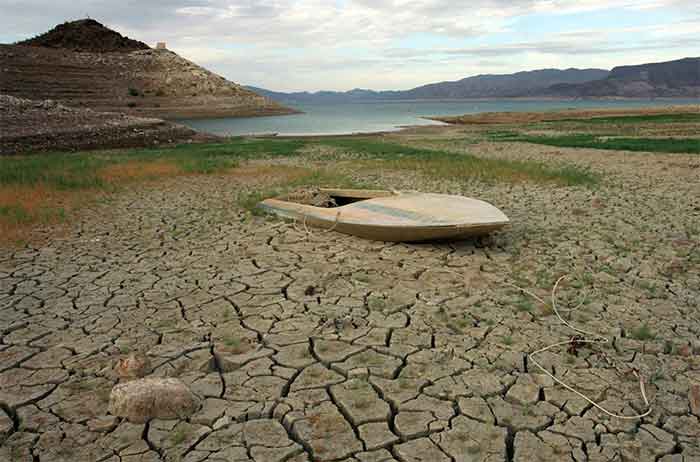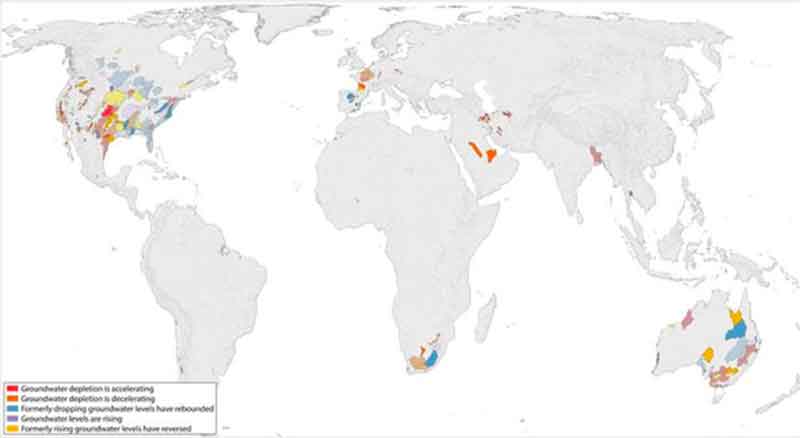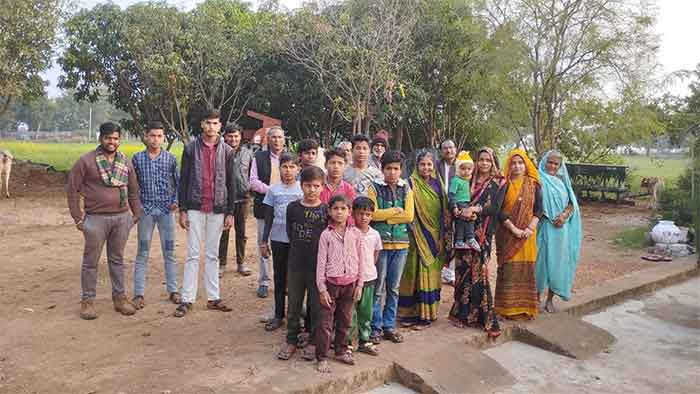
One of the biggest programs of installing water pipelines and taps in villages is under way in India. There is a lot of enthusiasm regarding this and a big sense of achievement. Statistics relating to progress which often appear in media are impressive.
However while visiting several villages from time to time often I hear different views from experienced and thoughtful people, particularly those living in areas which frequently experience water scarcity. These voices must also be heard to have a better understanding of the issue.
One aspect emphasized in these differing views is that the main problem and issue is that of water sources getting depleted or endangered in various ways (deforestation, mining, pollution etc.). Groundwater table is declining in most places. Some of the smaller rivers are almost vanishing while others are badly depleted in dry season. Many lakes and tanks are badly endangered. Hence resources and attention must be mainly concentrated in saving water sources. Of course the government says it is working on this front too, but the people with a different view say that the priorities are more on pipelines than on saving water resources.
Another point that is being made is that as long as wells, tanks and other traditional water sources are being used to fetch water, attention is being given regarding their care and protection, but this is likely to diminish once piped water supply is ensured at home at least temporarily. Henceforth, traditional water sources may not get the same care as before.
Thirdly, there is the question of ensuring sustainable source of water for pipelines in a situation of depleted water sources and climate change/global warming. This would mean a lot of pressure on already depleted sources as these are made to service village near and far. There may be diversions and lifting of water, including much use of commercial energy and fossil fuels (electricity and diesel) when these need to be saved. Given frequent electricity failures in rural areas, won’t a basic need like water become too dependent on electricity supply? Won’t many villages become too dependent for water supply on distant sources? In keeping with gram swaraj precept the goal should be to make a village self-reliant regarding a crucial need like water by focusing on water conservation in and around the village. But the present strategy appears to be taking many villages away from self-reliance than towards self-reliance in the context of a basic need like water.
In the past it has been difficult to maintain much smaller pipeline networks in rural areas. Damaged pipelines cannot be repaired in time leading to massive wastage of water while water does not reach those for whom it is meant. Will it be possible to maintain the much bigger network of pipelines that is being created now, and will it be possible to increase the staff strength to the extent that it is needed for maintenance of a much, much bigger network of pipelines? You can install pipelines using contracts, but what about regular maintenance? Will big maintenance and electricity expenses lead to big water bills to rural households and will water-supply be denied to those who cannot pay the fat bills?
While the promise is to make the life of villagers easy, what if water sources dry up or electricity disruptions hinder water supply or if water cannot reach village homes due to pipelines being damaged. In such a situation villagers may like to rush to their traditional wells and tanks but find that due to neglect of these water sources during times of regular water supply in taps, these traditional sources are no longer in a position to meet their water needs.
At present the problems are mainly in the context of rural roads being dug up to install pipelines and then not being restored properly. This is leading to accidents as well as access to villages becoming more difficult. One hopes that these immediate problems can be taken care of by proper administrative action and directions to contractors. However some of the longer-term aspects mentioned above need more serious discussion and debate regarding the priorities and direction of rural water supply schemes. We should be very careful to avoid walking on a path which despite heavy costs today can increase problems after some years.
Bharat Dogra is Honorary Convener, Campaign to Save Earth Now. His recent books include India’s Quest for Sustainable Farming and Healthy Food, Protecting Earth for Children and Planet in Peril.














































